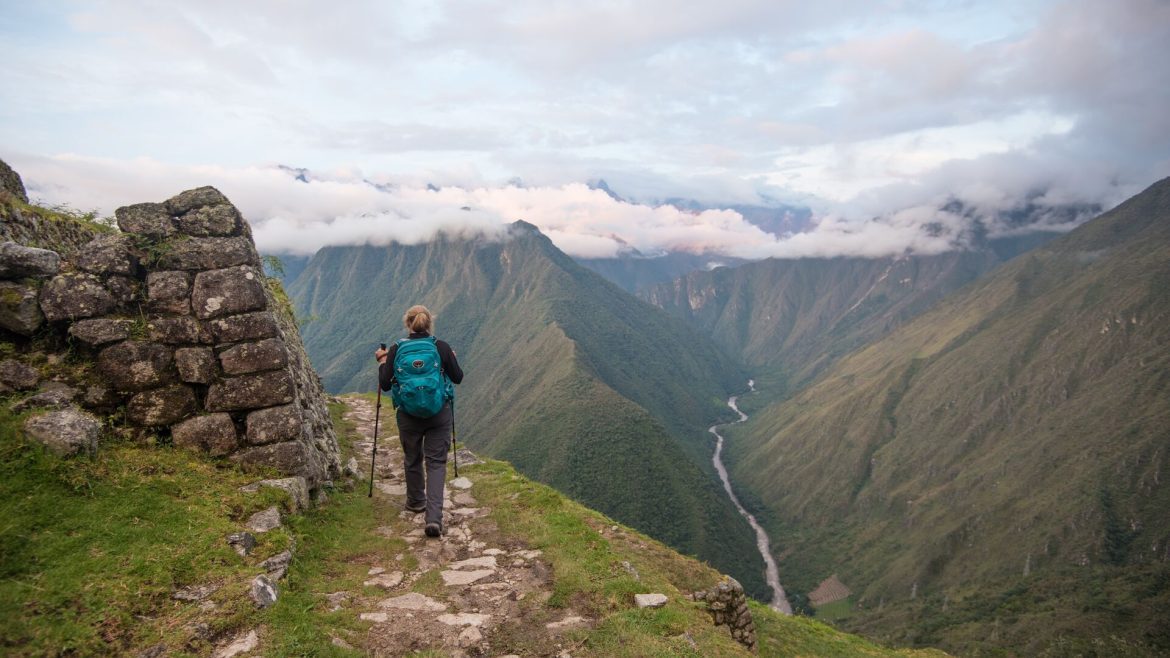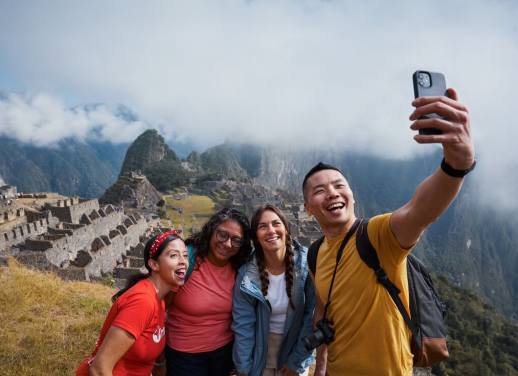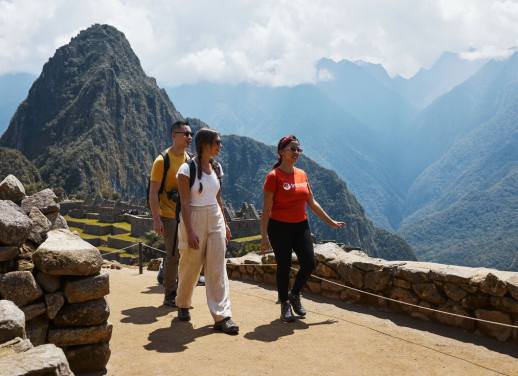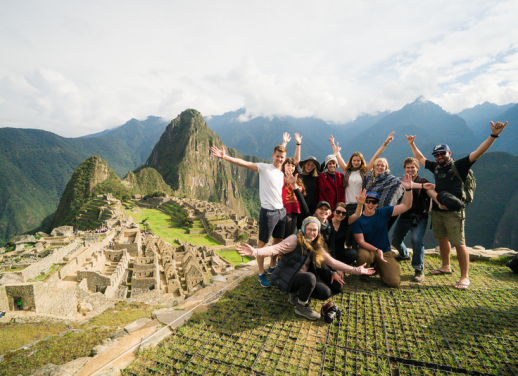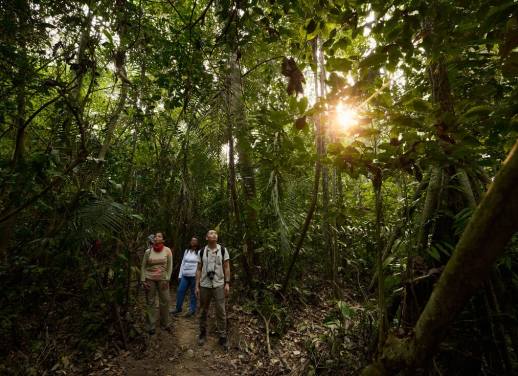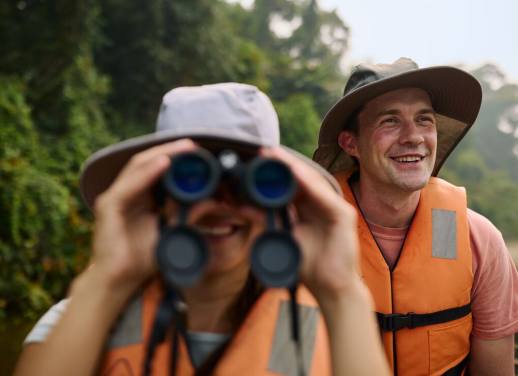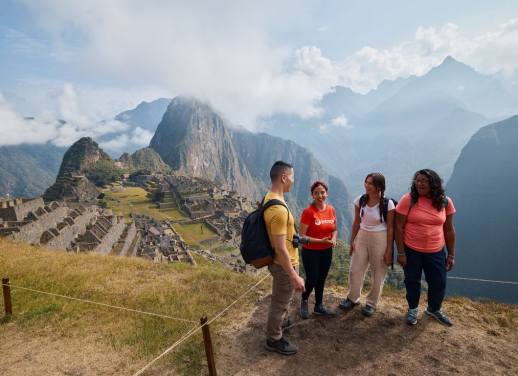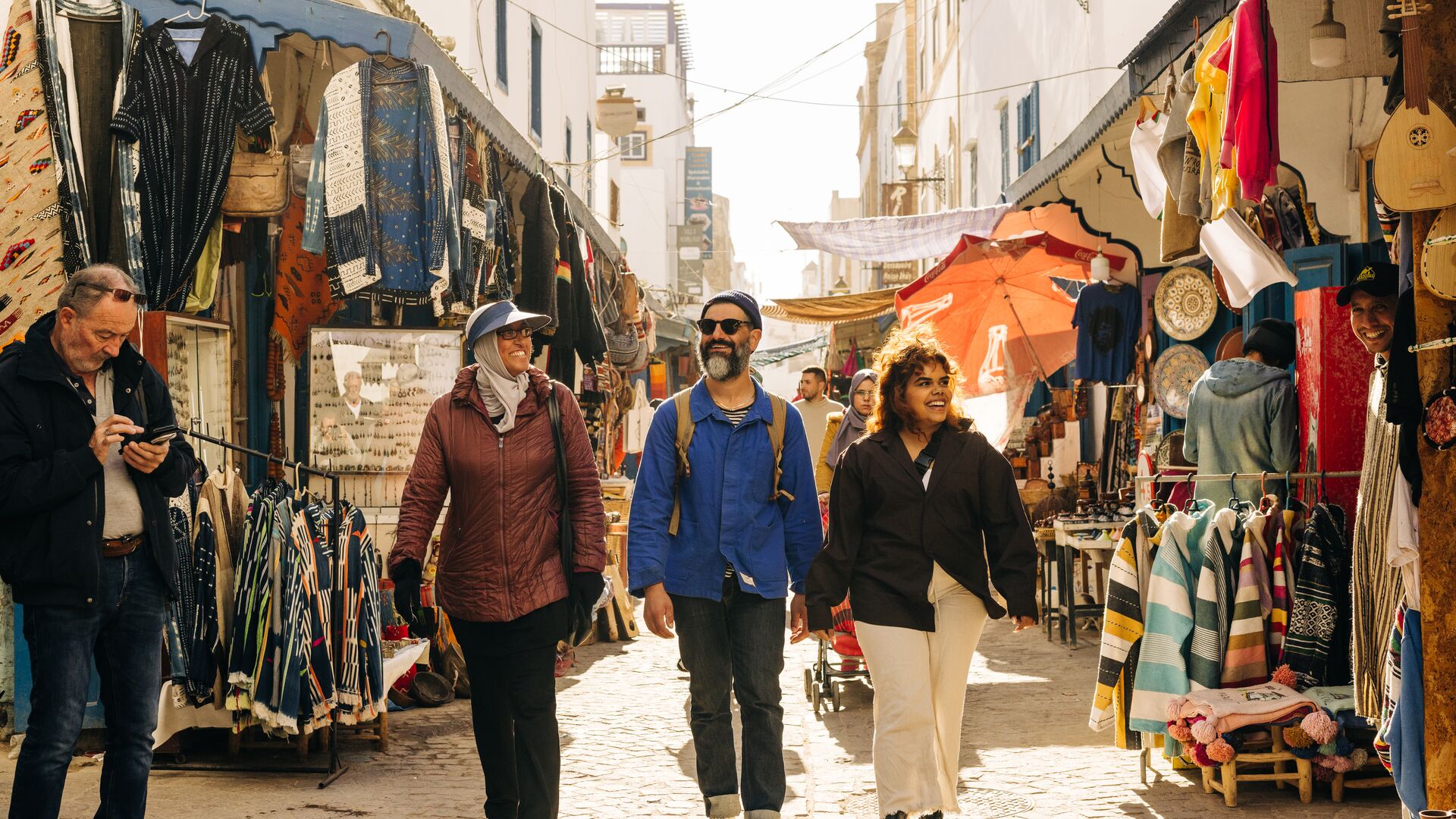“It’s not the destination, it’s the journey” may be cliché, but when it comes to the Inca Trail to Machu Picchu, it’s about the destination and the journey.
To protect this UNESCO World Heritage site, the Peruvian government has limited the number of daily travellers that can access both the Inca Trail and Machu Picchu, which means a permit, entry ticket and planning are required.
The Inca Trail is for history and nature lovers alike, a chance to follow in the footsteps of a great lost civilisation while revelling in transcendent views along the way. Millions of travellers flock to the ancient ruins every year, and for good reason. While we would all love to marvel at this site, there are a few steps to take (literally) before you get there.
Table of Contents:
- What is a permit and why do you need one?
- What if I don’t get a permit?
- Permit-free alternatives
- How fit and experienced do I need to be to hike the Inca Trail?
- Make a positive impact visiting the Inca Trail
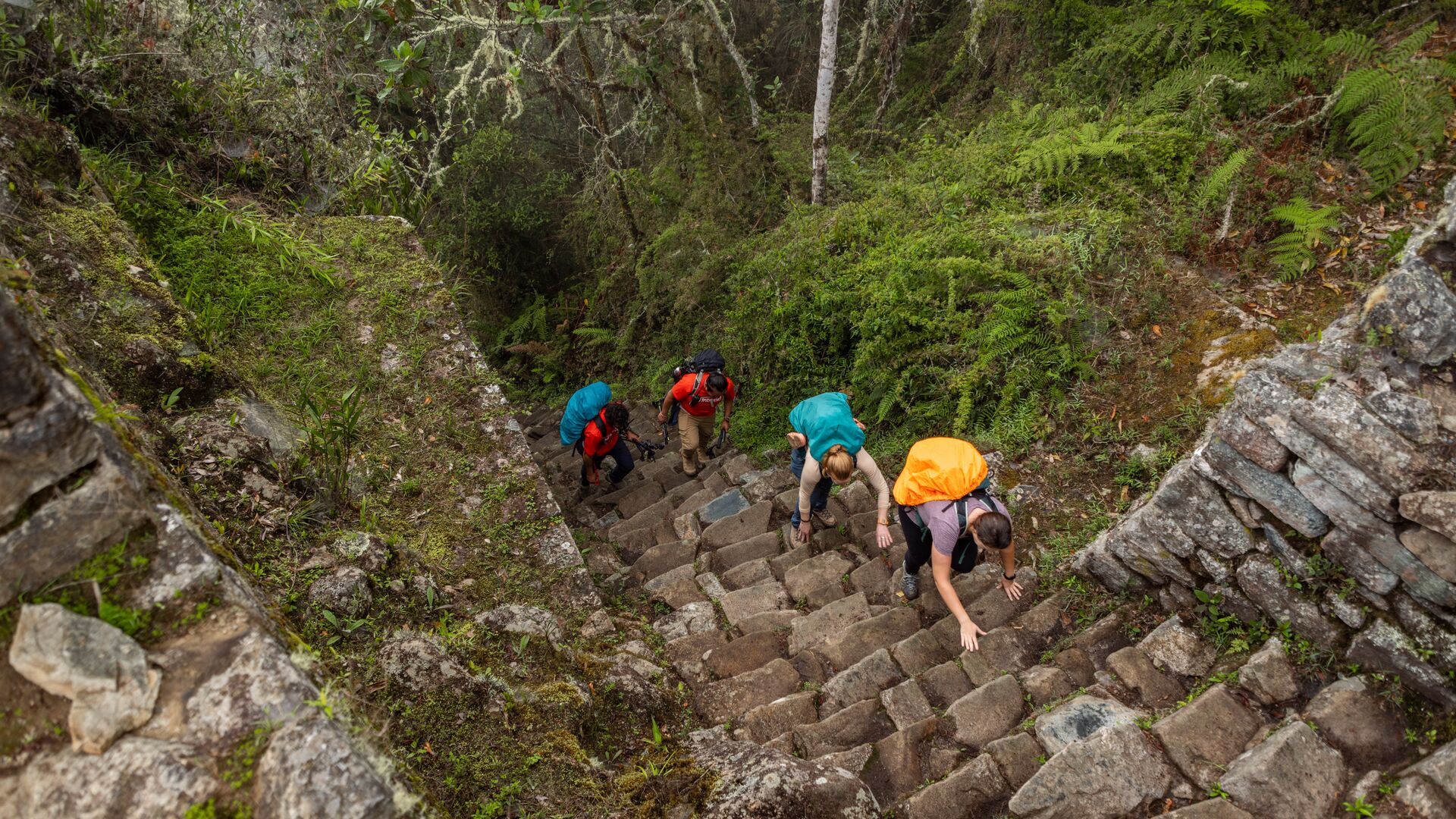
Discover Intrepid’s range of small group trips to Machu Picchu
What is a trail permit and why do you need one?
All travellers who want to hike the Inca Trail must have a permit. The maximum number of Inca Trail permits is 500 per day, including crew and porters, which means that only about 200 permits are allocated to visitors. So, if this trip is high on your bucket list (and should be), it’s time to start planning now.
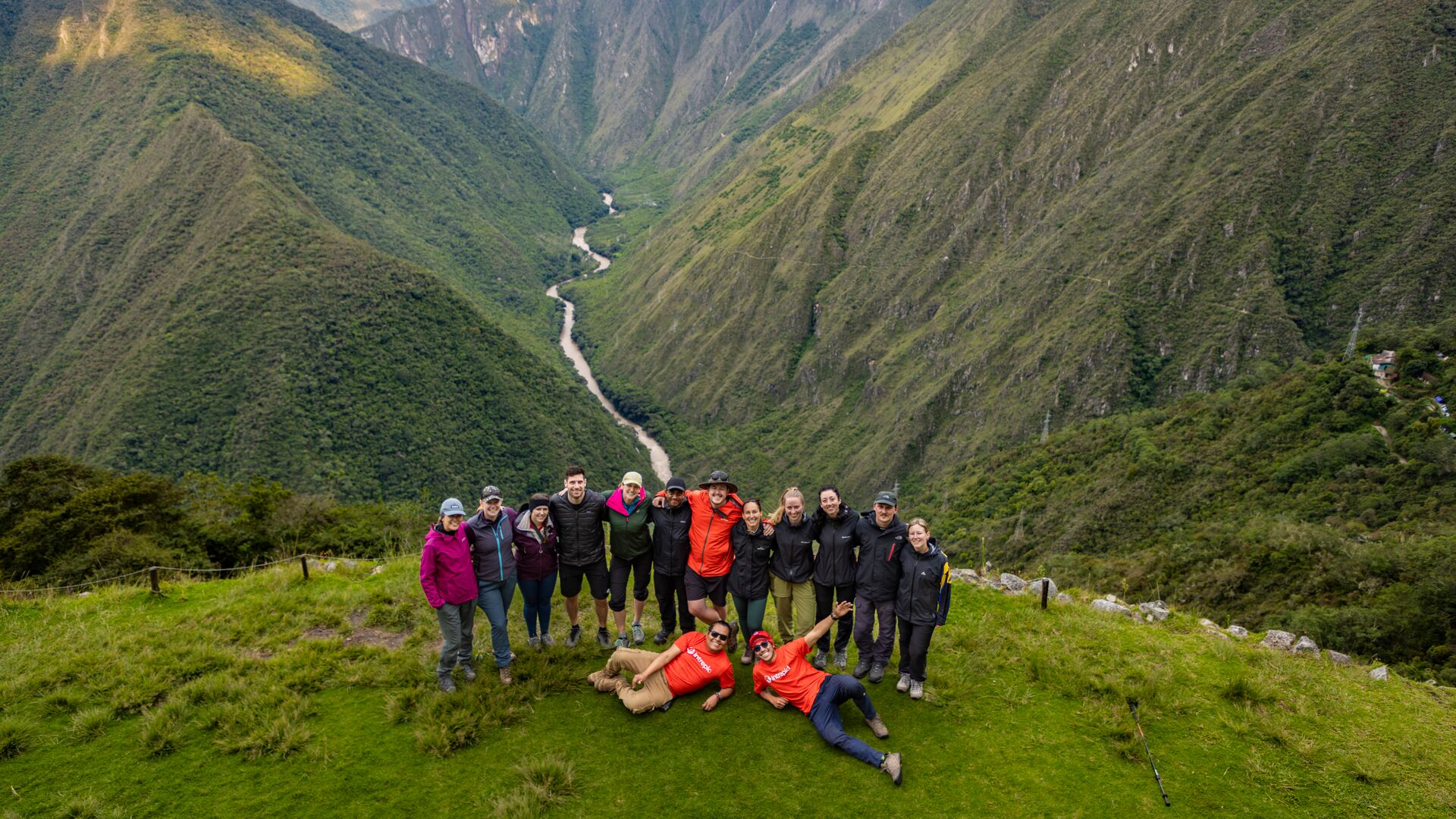
Here’s what you need to know:
- In mid-October, the Inca Trail government authority will release permits for the Inca Trail for 2025
- During peak hiking season (June-August), you should try to book at least five to six months in advance
- Travelling with a tour operator is mandatory to hike the Inca Trail – travellers are not allowed to do it on their own
- The Inca Trail is closed for the entire month of February for maintenance and conservation, but the Quarry Trail and train to Machu Picchu are still open
I don’t know about you, but as soon as I hear anything about visas, documentation requirements, permits, passes, etc., my brain becomes mashed potatoes. I have to do what? When? How??
How to get an Inca Trail permit
For an iconic trip like this, there are rules to follow. Travelling with a tour operator like Intrepid is mandatory to trek the Inca Trail and enter Machu Picchu, but that’s not something you need to stress about. Planning a trip should be enjoyable, so all you need to do is simply book the Machu Picchu trip of your choice and Intrepid will deal with the logistics.
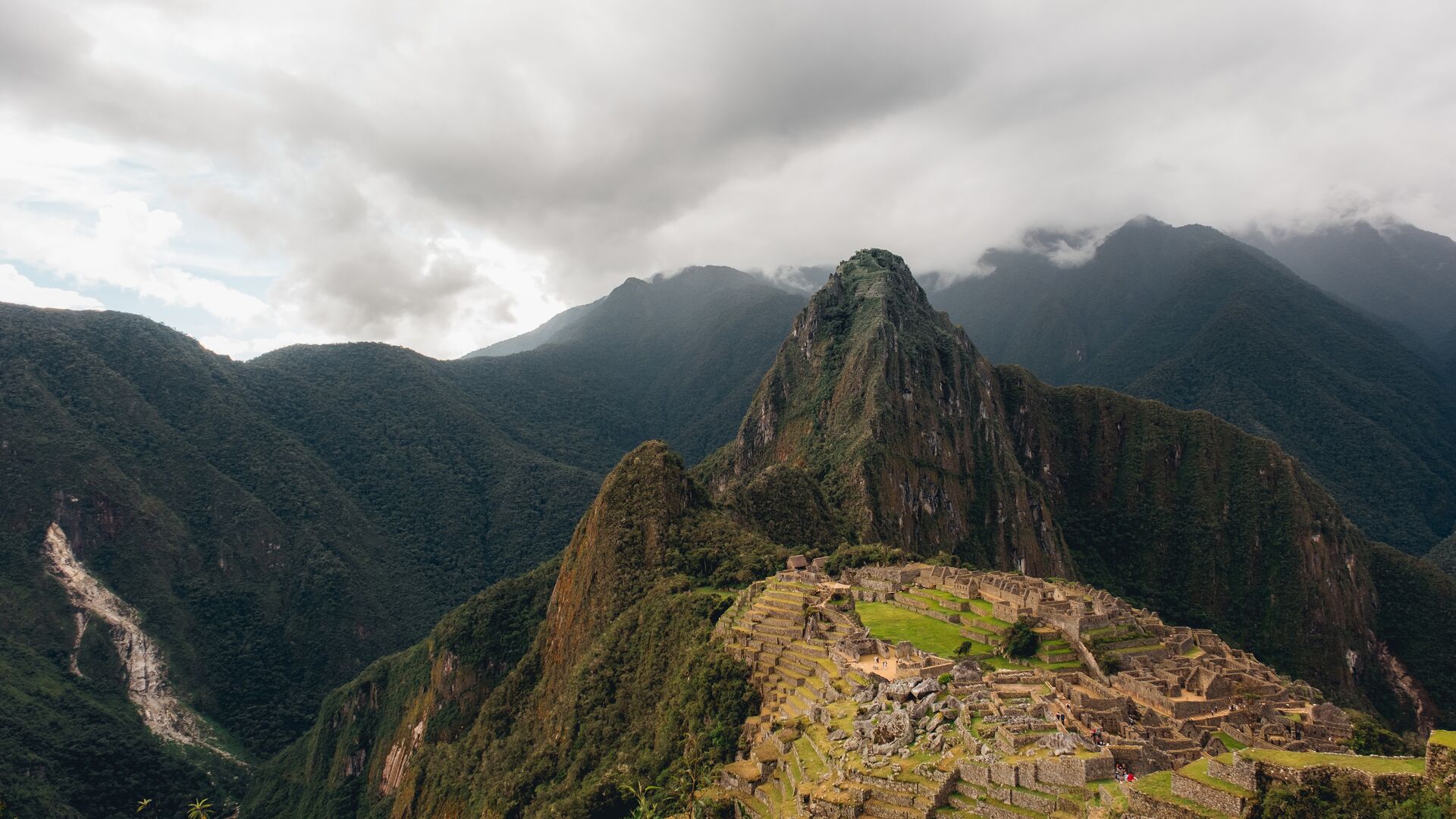
Here’s the cool part:
- Intrepid has 30+ tours that will bring you to Machu Picchu
- Upon arriving in Peru, your local Intrepid leader will have your Inca Trail pass confirmed and handled for you
- A separate ticket required to enter Machu Picchu is included in your trip
- Transportation from Cusco or Lima will be coordinated for you
- Your local crew will have you covered on camping gear and the porters will even carry it for you
- Local cooks will prepare you three meals a day, provide snacks and can cater to dietary restrictions and allergies
Seriously, it’s that simple. All you have to do is:
- Pick out an Intrepid Inca Trail trip
- Book it
- Provide full passport details required to book and confirm Inca Trail permits and enter Machu Picchu
Oh, and entry tickets into Machu Picchu? That part’s covered, too. So, take a deep breath, pack your comfiest hiking shoes and start feeling confident and adrenalised for your trip.
What if I don’t get a permit?
Great question.
The Inca Trail is a popular trek, so there is a chance you could book a trip without securing a permit for your selected dates. If this happens, don’t worry, you’ve got some options. In case you don’t get a permit, you can:
- Take the train
- Hike the Quarry Trail
- Change the date of your trip
Every Intrepid trip that hikes the Inca Trail offers the option to take either the Inca Trail, Quarry Trail, or train to the historic site. However, if your heart is set on the Inca Trail and you don’t get a permit, you’ll just have to be flexible with your dates.
Related: 12 cool facts about Machu Picchu
Permit-free alternatives
Quarry Trail
The Quarry Trail does not require a permit, and you can still experience a three-day trek and camp in the Andes.
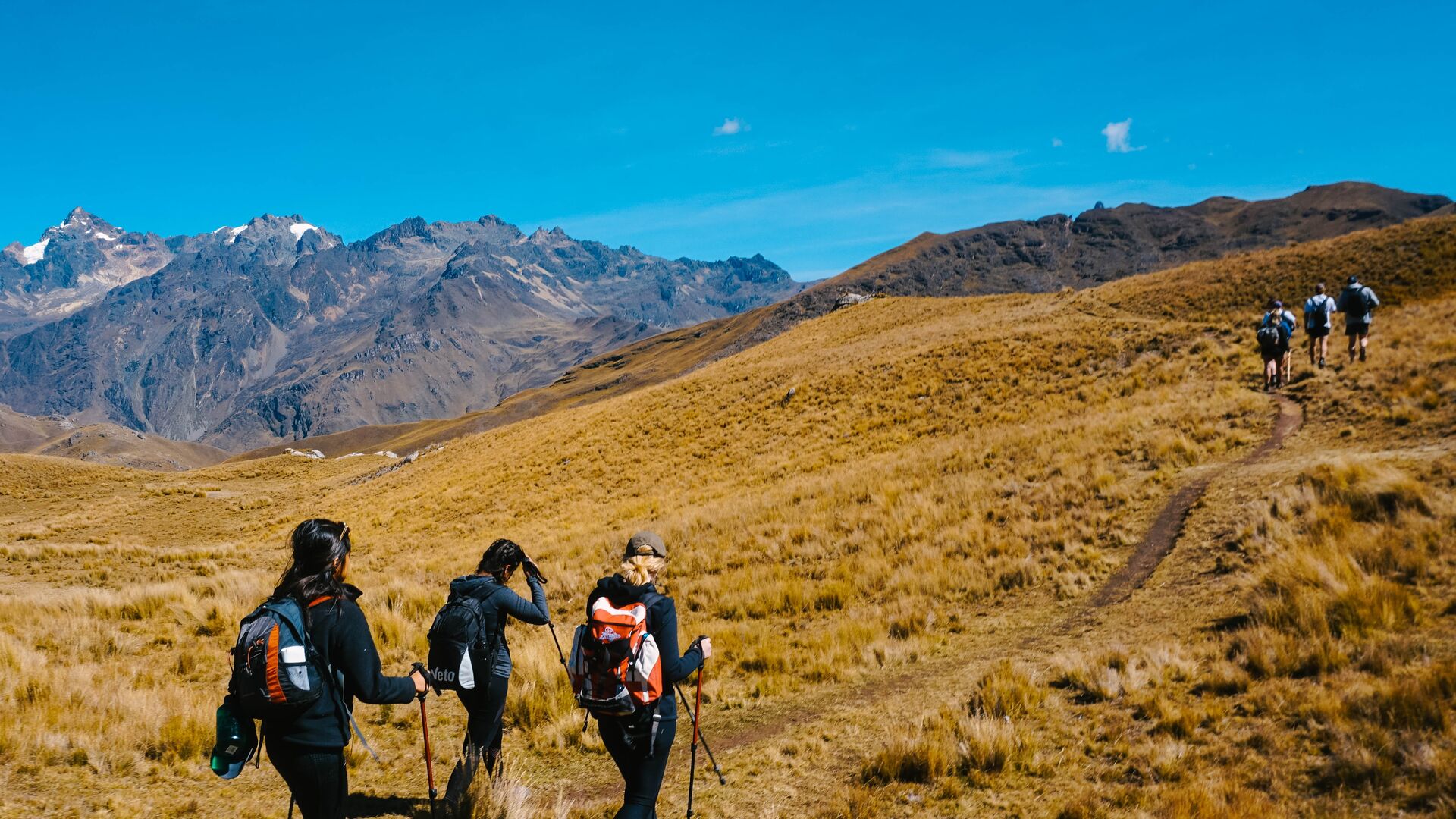
While the Inca Trail is the more popular option, as it’s the only way to hike directly into Machu Picchu, people opt for the Quarry Trail for many reasons. You’ll ooh and aah at archaeological sites, authentic cultural interactions, valley views, a visit to a waterfall and a finale in Aguas Calientes, the getaway town of Machu Picchu.
Another major perk is the bragging rights of reducing your impact of over-tourism and seeing fewer travellers than on the Inca Trail.
Are you not into hiking altogether? There’s an option for that, too.
Machu Picchu by train
Travelling by train is another accessible option for getting to Machu Picchu in the most leisurely way possible. With a fully guided trip with a local leader, you’ll still get the community feel and camaraderie and spend even more time in the ancient capital, Cusco.
Sit back, relax, and enjoy one of the most scenic train journeys in the world as you ride to the Lost City of the Incas.
How fit and experienced do I need to be to hike the Inca Trail?
While you could technically show up with no experience and hit the trail, it’s not recommended. I can’t stop you from going from couch to trek, but I can encourage a bit of prep. For starters, you will endure high altitude, so there is a chance you can suffer from altitude sickness regardless of your physical health.
Both the Quarry and Inca Trail treks will face you with steep ascents and difficult terrain, so a good level of fitness is recommended. If this deters you, you can always hop on the train.
Simple steps will get you ready, from choosing the stairs as often as you can, going for short hikes, adding a walk into your routine and maybe even hitting up the stair master at the gym.
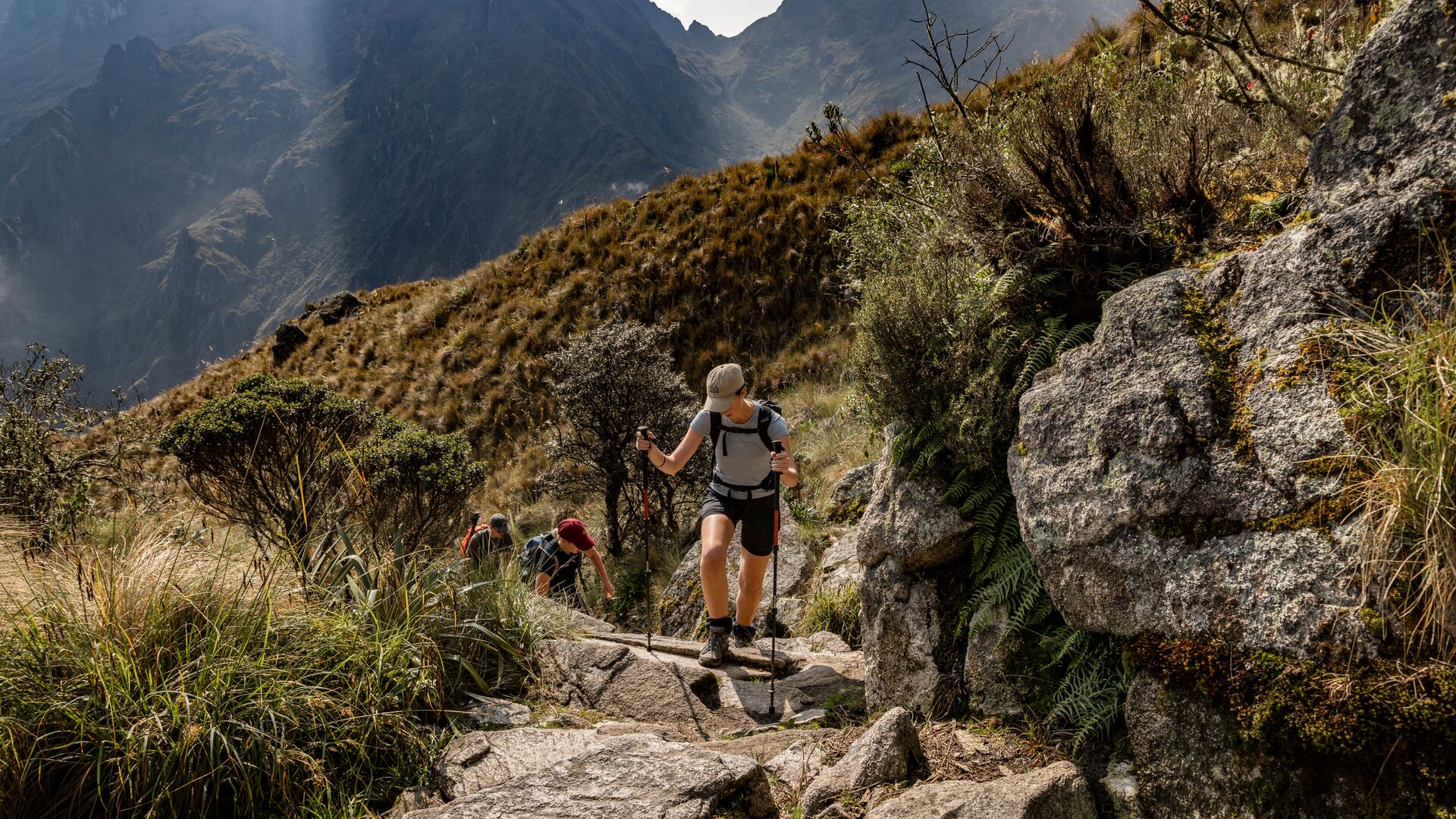
While the crew will have your gear for you, you are responsible for arguably the most important part: comfortable walking shoes. You should invest in a quality pair of water-resistant hiking boots and break them in. Wear them around the house, take them for a spin at the grocery store and get some steps in those puppies before you whip them out on the trails. While I can’t promise you won’t still get blisters, it will be a game-changer.
Don’t let the physical prep deter you; just get those legs moving and you’ll be fine. You don’t even have to worry about building your upper body strength, the porters will lug your tents and equipment for you, so you just have to carry your day bag.
Make a positive impact while you travel
There are many ways to travel; you can volunteer to support local communities, stay in a resort and focus on your needs and relaxation, or travel consciously and responsibly with a keen eye for the people and the environment.
What type of traveller do you want to be?
The ethics of travelling can be rocky, with the guilt of contributing to over-tourism or negatively impacting the environment. There are ways to see the world, enjoy your trips and still make a positive impact. When you travel with Intrepid, you can take a good trip and do good doing so (say that 5x fast).
Trekking to Machu Picchu will have you beaming with pride, wonder and, honestly, exhaustion. Pride for what your body is capable of enduring and pride for what you’ve accomplished. When you travel with Intrepid, you’ll also leave feeling pride for the positive impact you made on the local community.
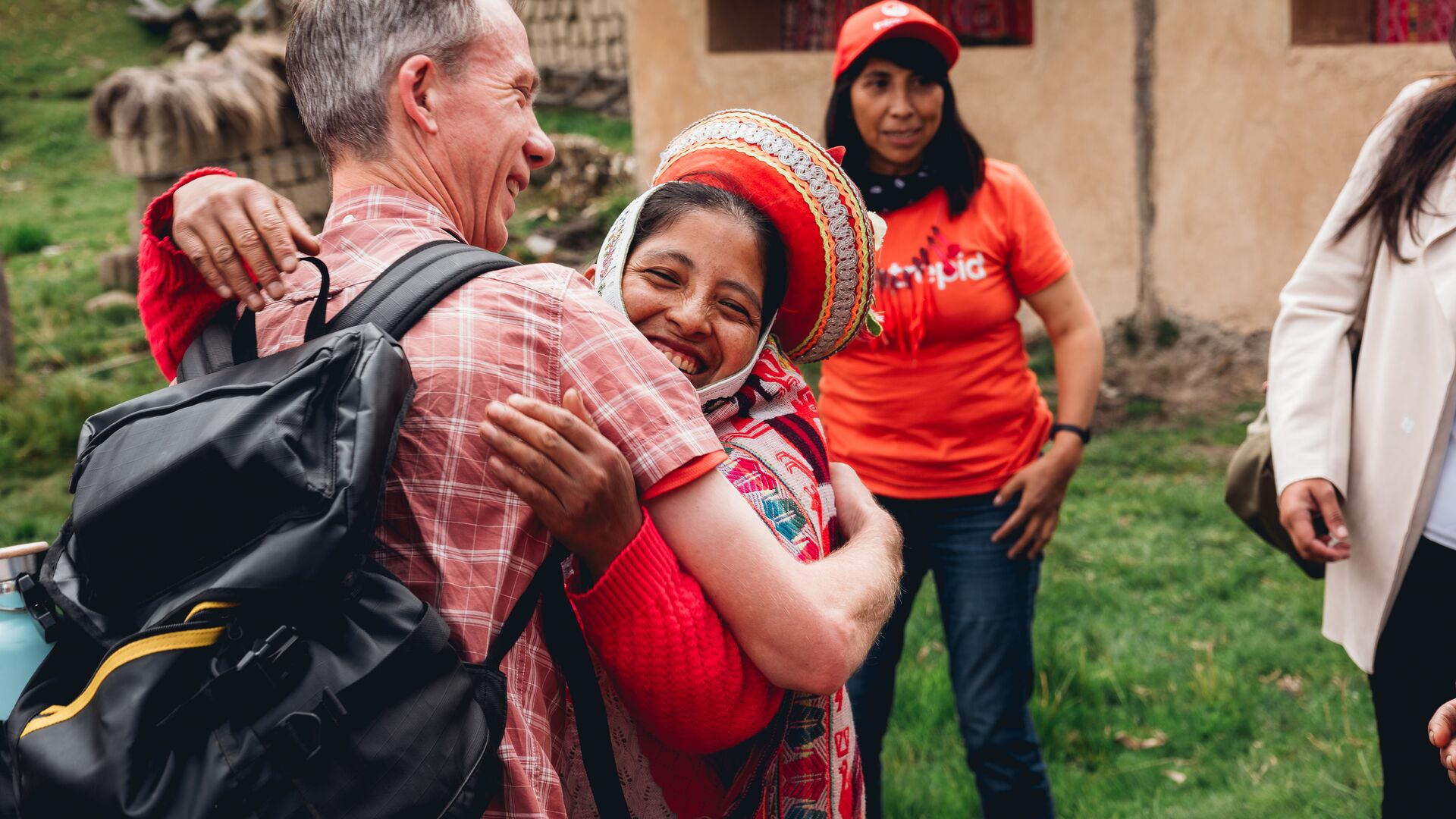
Leave the guilt of being a tourist behind and immerse yourself in the local Peruvian culture. Intrepid’s crew, leaders and porters are all from the local area, meaning you’ll directly and positively affect the local economy while learning from experts about the Peruvian way of life.
But it goes even deeper.
As the largest B Corp certified operator on the Inca Trail, Intrepid’s treks benefit all, far beyond just the traveller. On the trip, you will stay in locally run accommodations and campsites set up by the staff while visiting locally run restaurants and markets to further benefit their economy.
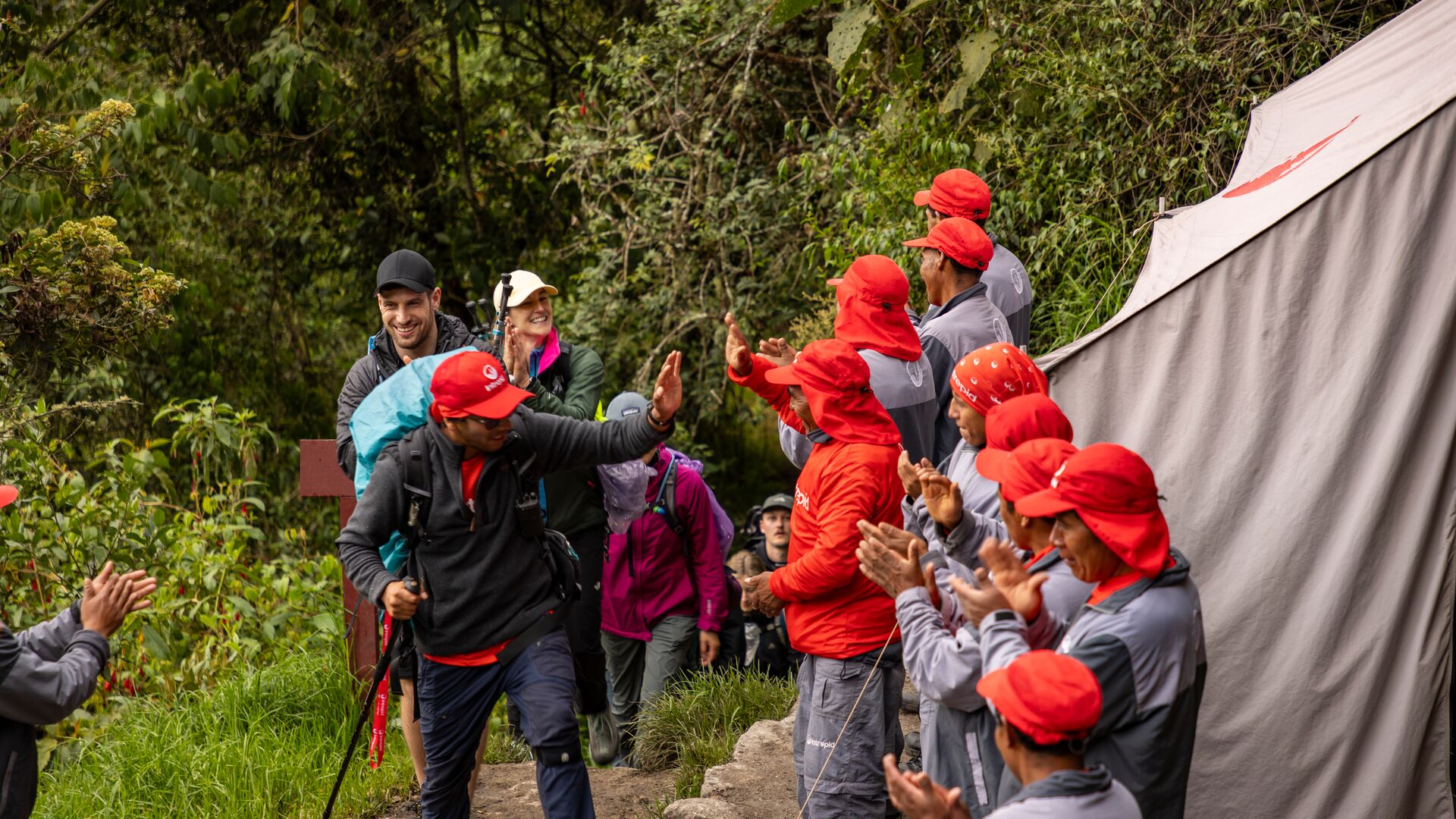
You can hug a tree literally and figuratively on this trip. Intrepid has made significant strides in removing single-use plastics from the supply chain and all waste is removed from the trail. Organic waste is given to local communities for compost and animal feed, and even oil is saved to be recycled into soap and other products. Now, that’s something to be proud to be a part of.
Not only will you check off a massive bucket list item, but you can feel good doing so.
Ready to hit the trail?
This may seem like a lot of information, but this trip does require some forward-thinking. I’m someone who likes to wing it but for iconic experiences like this, you do need to start planning early.
The most important part is to book five to six months in advance for the best possibility of securing a permit for your selected dates. Other than that, grab your hiking shoes, start going on some walks and get ready for your odyssey through sacred valleys into the Lost City of the Incas.
Intrepid’s got your trip covered with small group Machu Picchu adventures.

